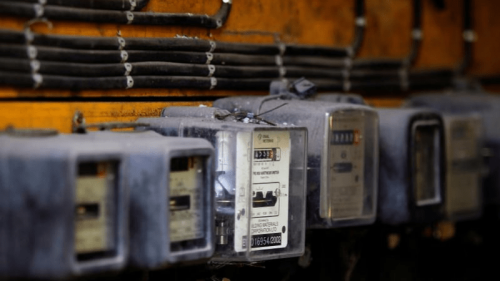- Web
- Feb 05, 2026
Discos set to burden consumers with additional Rs30 bn
-

- Javaid Soomro
- Sep 20, 2023

ISLAMABAD: Despite a nearly 26 per cent increase in the annual base tariff and approximately 18 per cent quarterly adjustments, electricity costs in Pakistan continue to rise as former Wapda Distribution Companies (Discos) seek an additional PKR1.83 per unit in fuel cost adjustment (FCA), aiming to extract an additional PKR30 billion from consumers next month.
This comes as over 74 per cent of power generation in the country is sourced from local, cheaper fuels like hydro, coal, gas, nuclear, wind, solar, and bagasse.
According to Dawn.com, the Discos, represented by their commercial agent, the Central Power Purchasing Agency (CPPA), have jointly petitioned the National Electric Power Regulatory Authority (Nepra) for an additional FCA of PKR1.83 per unit in the billing month of October for electricity consumed in August.
Nepra has accepted the petition and has scheduled public hearings for September 27 to assess the proposed tariff increase in line with FCA mechanisms and economic merit order.
The reports said that the increase in FCA comes despite an approximately PKR7.5 per unit increase in the base average tariff, effective from July 1.
An additional PKR5.40 per unit quarterly tariff adjustment (QTA) worth PKR146 billion is also pending, with the regulator having already completed the public hearing process. The recovery of this amount may be staggered over six months at a rate of PKR3.55 per unit, rather than the initially proposed PKR5.40 per unit over three months.
Read More: PM Kakar urges resource support for weaker nations’ SDGs
Earlier in August, hydropower plants contributed almost 38 per cent to the national power grid, the highest percentage in months, compared to 37 per cent in July and 26.96 per cent in June. Hydropower does not involve fuel costs.
Meanwhile, LNG-based power generation accounted for 17.17 per cent in August, down from 19.67 per cent in July and 18.55 per cent in June. Nuclear power plants contributed 12.79 per cent in August, down from 14.2 per cent in July and 13.54 per cent in June.
Local coal-based generation stood at 10.3 per cent, while imported coal-based generation was at 4.51 per cent.
This is the first time Nepra has separately reported local and imported coal-based power generation, highlighting a significant difference. In July, the cumulative (local and imported) coal-based generation was 14.69 per cent, compared to 17.75 per cent in June.
Power supply from domestic gas remained at 7.60 per cent in August, compared to 7.61 per cent in July, 8.54 per cent in June, 10.35 per cent in May, and 12 per cent in April.
The cost of furnace oil-based power generation increased further to PKR33.32 per unit in August, up from PKR28.7 per unit in July, PKR26.1 per unit in June, and PKR23.24 per unit in May.
LNG-based power generation costs in August were slightly reduced to PKR23.7 per unit from PKR24.43 in July and PKR24.07 in June. Furnace oil-based generation in August increased to 4 per cent of the total power generation, up from 2 per cent in July but still lower than its 5.4 per cent share in June.
The cost of power generation from domestic gas slightly dropped in August to PKR13.22 per unit from PKR13.7 per unit in July but was higher than PKR11.74 per unit in June.
Local coal-based power generation costs were PKR7 per unit compared to PKR20 per unit for imported coal. In July, the combined coal-based fuel cost was PKR11.54 per unit, and PKR14.05 per unit in June.
Three renewable energy sources—wind, bagasse, and solar—together contributed about 5.8 per cent to the national grid in August, up from 4.5 per cent in July and 5.6 per cent in June. Wind and solar power have no fuel costs, while the cost of bagasse-based generation remained unchanged at about PKR6 per unit.
The CPPA claimed that consumers were charged a reference fuel cost of PKR6.65 per unit in August, but the actual cost turned out to be PKR8.47 per unit. They are seeking an additional charge of PKR1.83 per unit.
Pending approval by Nepra, the increase in FCAs will be reflected in consumers’ bills in the upcoming billing month of October.
The FCA is reviewed monthly as per the applicable tariff regime and is typically applicable to consumers’ bills for one month only. The higher FCA, once approved, will apply to all consumer categories except lifeline power consumers, protected domestic users consuming up to 300 units, agricultural consumers, and electric vehicle charging stations.
The adjustment on account of monthly FCA also applies to domestic consumers with Time of Use (ToU) metres, regardless of their consumption level.
Under the tariff mechanism, changes in fuel costs are passed on to consumers on a monthly basis through an automatic mechanism, while quarterly tariff adjustments are included in the base tariff by the federal government to account for variations in power purchase prices, capacity charges, variable operation and maintenance costs, use of system charges, and transmission and distribution losses.




